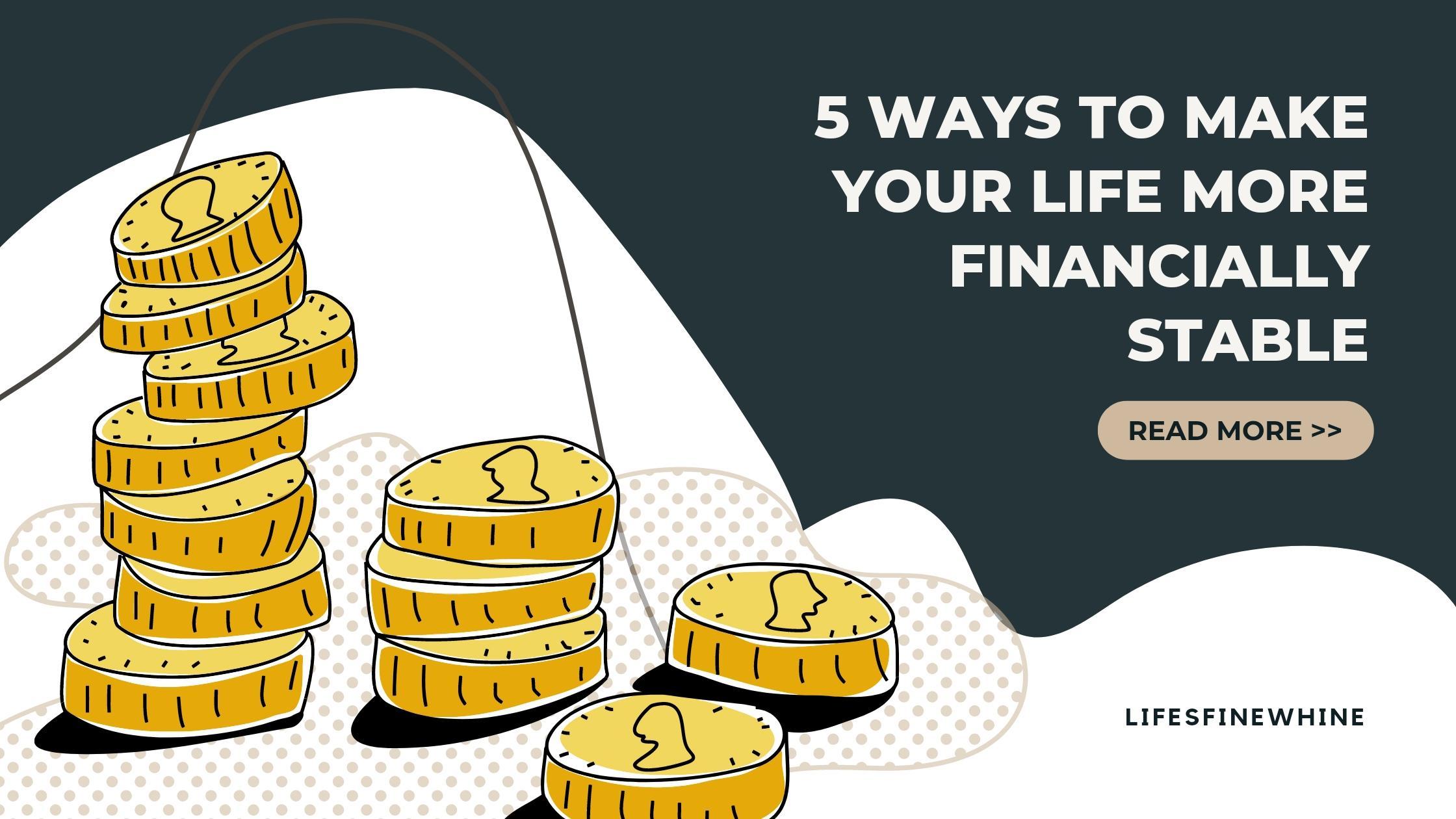
There’s no one right way to handle your money. So long as you’re thoughtful and responsible, there’s room for flexibility in managing your finances. Some financial habits are more sound than others. Some people find that investing through stocks, bonds and Commodities Trading is a great way to find financial stability, while others pay take on side hustles. Today, I wanted to share some ways to make your life more financially stable.
Yesterday, I wrote a post about the longterm effects the pandemic has had on our lives and one of the things I mentioned was finances. I got a lot of comments mentioning how much the prices have increased and how incomes have not increased much. I absolutely agree with that and therefore decided to share some ways I have found that can help you be more financially stable, even with the increasing prices.
So, here are some financial moves you can make to give yourself added security and stability:
Set a financial goal
Make a list of the most important things to you and prioritize them in order of importance. Then, once you have this list, write down how much money it will take to achieve each goal and when.
Don’t worry about how long it takes those around you or compare yourself to them. It’s just about setting goals so that when times get tough financially or emotionally, something positive for you is centered around finances rather than negative emotions surrounding debt or lifestyle choices that are no longer affordable.
Make a budget
Budgeting isn’t complicated—you can use an online budgeting app or even track expenses on paper. A good rule of thumb is that if it’s unnecessary for survival, don’t spend it! For example, if you’re spending $50 per month on Netflix, maybe there are other streaming services or activities that cost less and provide the same enjoyment? Or maybe there are ways of cutting back on those kinds of expenses while still keeping those subscriptions active? The key here is finding a balance between spending money on fun things and living within your means not to overextend yourself financially or risk getting into debt.
Prioritise paying off debt
If you have debt, it’s a good idea to prioritize paying off the highest interest rate debts first. For example, if your credit card balance has a 23% APR and your student loan balance has a 4% APR, pay off the credit card debt first so you can achieve financial stability faster. You’ll save money on interest payments by doing this!
You should also consider whether you want to refinance your car loans or mortgages at lower interest rates. This will depend on what kind of car/home you purchased, how long ago it was, and whether refinancing would save money (that depends on factors like how long until your next payment is due). If refinancing sounds like something that might benefit you financially in the future, consider doing some research before committing yourself to any contracts with lenders who may offer better deals than those currently available through other lenders.
Start saving
We all know that saving money is essential, but when we look at what we spend our money on, it can be hard to see where or how much extra cash could be saved.
The good news? Saving money doesn’t mean depriving yourself of every new gadget and game. There are so many fun ways you can save money—and not just by cutting back on lattes or going without designer shoes. You can still treat yourself- just do so wisely and make sure you’re putting some money aside each month.
Be responsible with your credit cards
Remember, you are responsible for all charges on the credit card. In addition, you will pay extra interest charges if you don’t pay off your monthly balance.
Credit cards are a great way to build a good credit history. You’ll be able to get better rates on things like car loans and mortgages down the road when you have a good track record of paying back what you owe. But if you can’t afford it now, don’t use your credit card to buy something unless it’s an emergency, like an unexpected trip or in an emergency situation.
Conclusion
I hope you found these tips helpful. I’ve talked about finances on some older posts but I thought I would share a more updated post today.
Is your life financially stable? What are some ways in which you make your life more financially stable? Do you do any of the things I mentioned above? Let me know in the comments below because I would love to hear your thoughts on this topic.
If you enjoyed this post don’t forget to like, follow, share and comment!
Enjoyed this post? Then follow me on social media:
Twitter Instagram Pinterest LinkedIn HubPages
Email me on(guest posts welcome!): insomniacwithanaccent@gmail.com






Leave a Reply